

April 15, 2016. In front of Bakirköy Women’s Prison, where my colleague and dear friend Esra Mungan, a professor of psychology at Boğaziçi University, was imprisoned. The writing on my fingers reads: “Freedom for Pens,” meaning freedom for those who express their thoughts in writing, which is a basic right. Courtesy of Can Candan
In July 2021, a letter calling attention to my unlawful and unjust dismissal from my teaching position of 14 years at Boğaziçi University in Istanbul, Turkey, and demanding my reinstatement was circulated internationally. It was signed by many colleagues in the documentary world. I am indebted to them for their support and solidarity. But to really understand what happened to me and to Boğaziçi University, one needs to understand what happened prior and since.
Back in January 2016, I began actively working on my fourth feature documentary film, Nuclear alla Turca, researching, writing, and crowdfunding.
At the same time, together with over 2,200 academics, I signed the Academics for Peace declaration calling on the Turkish government to end the violence and human rights violations against the Kurdish population and resolve the conflict through peaceful means. As soon as this petition became public, the government initiated a campaign to discredit and punish Academics for Peace, calling us traitors and terrorists. There were targeted hate campaigns, dismissals of signatories from universities, police raids, and judicial investigations. Four members of Academics for Peace were imprisoned for talking at a press conference to call attention to the hate campaigns and threats. That spring, we were busy trying to get our colleagues out of prison. After five weeks in prison, in their first court hearing, they were released awaiting trial.
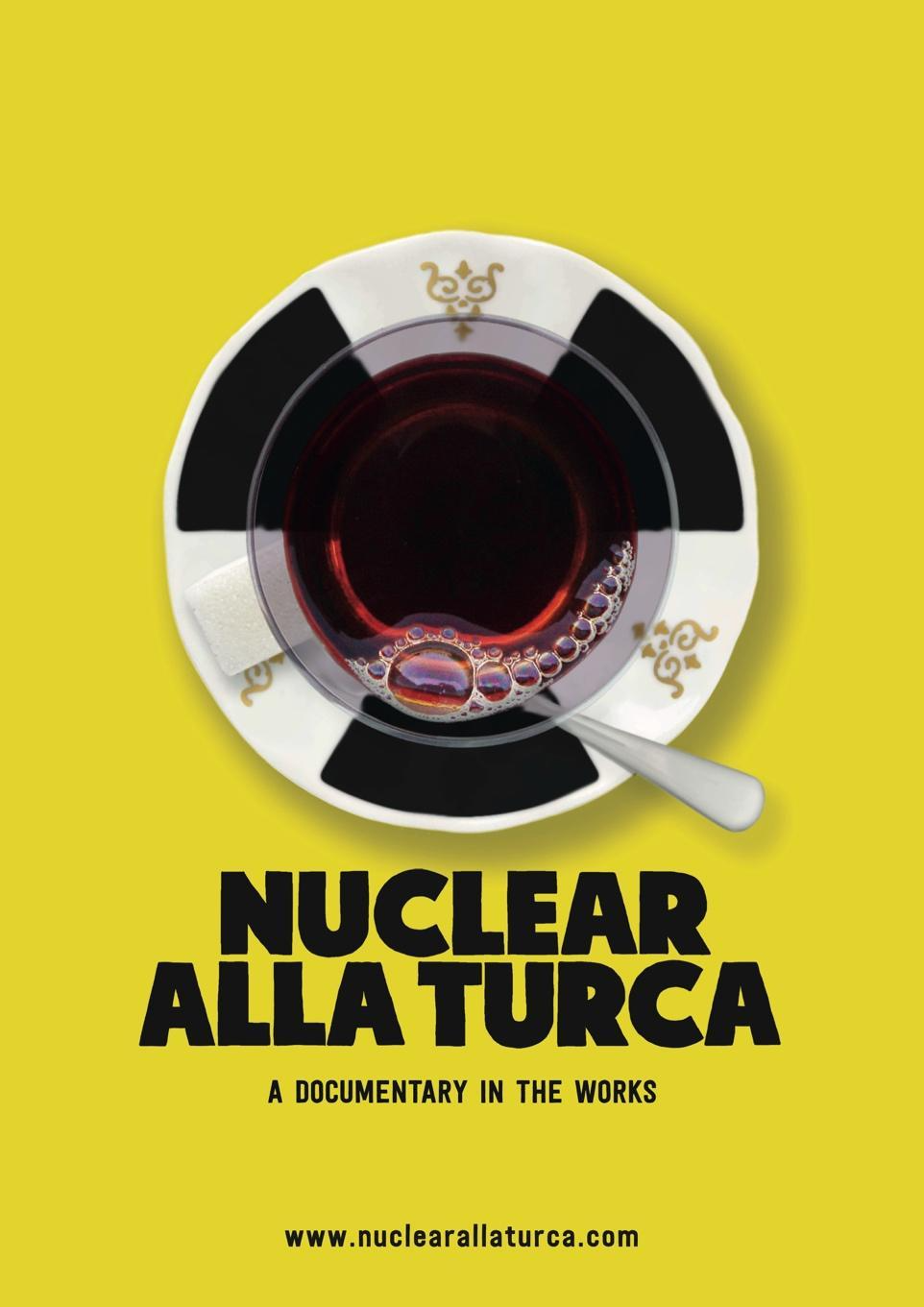
The End of Faculty Elections
Between 1992 and 2016, Boğaziçi University faculty elected the university’s top administrator from candidates who were our colleagues. This was in line with the Turkish constitution, which specifically protects universities’ institutional autonomy. In the summer of 2016, we had reelected our president, Gülay Barbarosoğlu, to serve for another four-year term, and were waiting for her official appointment by the Council on Higher Education in Ankara. A few days after Barbarosoğlu was elected, a coup d’état attempt by the Islamist Gülen movement shook the country, and a state of emergency was promptly declared by the government.
The Erdogan regime used this opportunity to purge dissident academics who had nothing to do with the Gülen movement or the coup d’état. The universities and the free-thinkers within these universities once again became targets, as they were after the military coup of 1980. University rectors were instrumental in putting the names of their critical and dissident colleagues on long purge lists, and hundreds of academics were dismissed overnight by unconstitutional presidential decrees. Boğaziçi University and a select few other universities were spared from these purges because their rectors refused to name any names.
With another presidential decree, Erdogan gave himself the absolute authority to appoint university rectors. Overnight, rectoral elections at universities became a thing of the past.
During these tumultuous months, it became clear that our elected rector, Barbarosoğlu, would not be approved by the regime. In an effort to compromise and protect the university from further attacks by the regime, she proposed that one of her advisors, Mehmed Özkan, a Boğaziçi University professor, be appointed instead. Because Özkan’s sister was a member of the parliament from Erdogan’s ruling AK Party, it seemed that he would be an acceptable candidate to the regime. This of course did not sit well with us, as it meant that we were disenfranchised, and protests ensued on our campus. That is when I took this photograph:
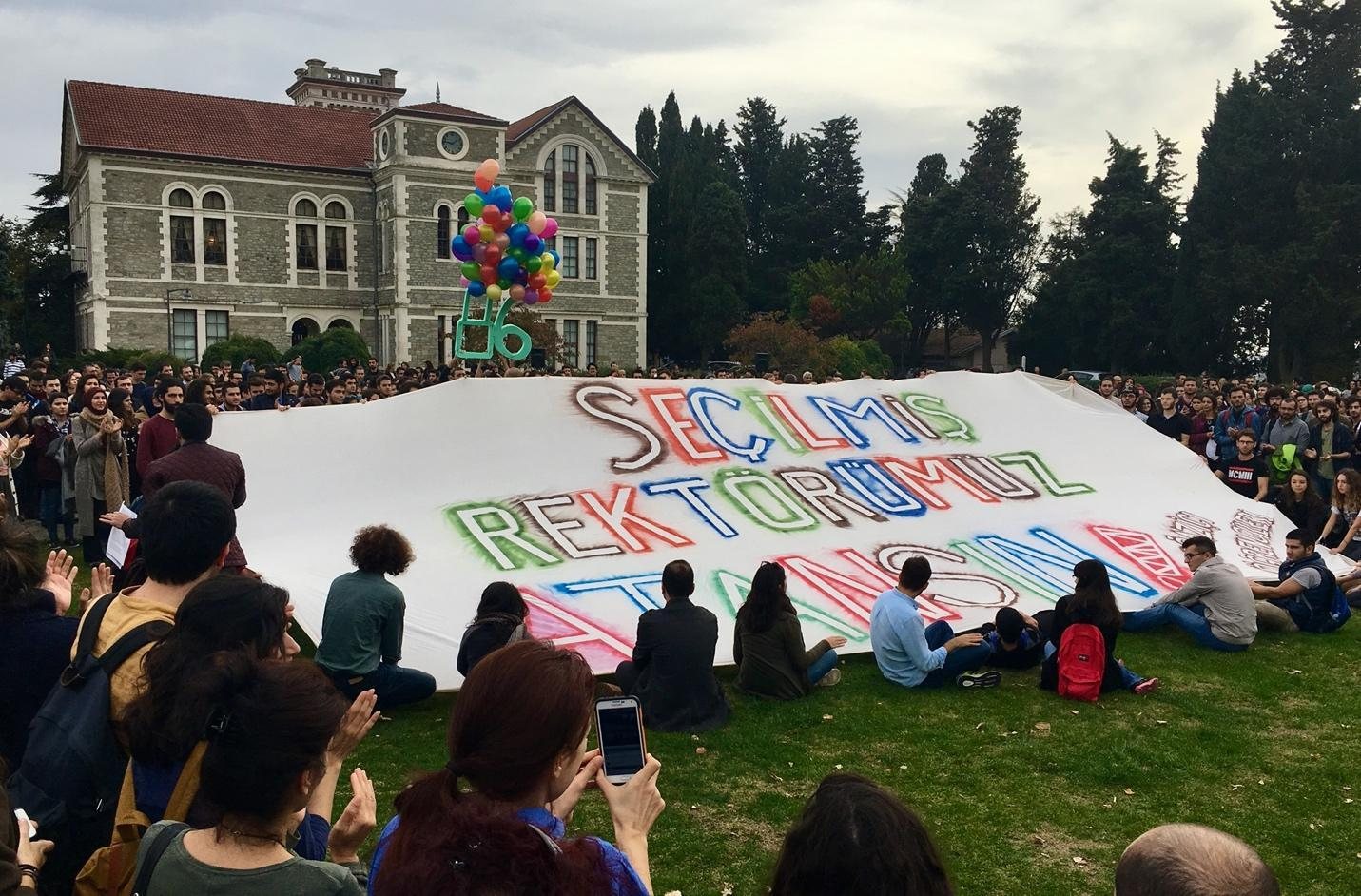
As we were getting news of the dismissals of our colleagues at other universities, the faculty began to see Özkan’s appointment as a reasonable compromise under the circumstances, since he was one of us. He had served under the previous administration of a rector who was reelected, but not appointed.
In the fall of 2016, a four-year-long period of compromise and silence began. I refer to this period as akin to a forced marriage, where you are extremely unhappy but cannot think of a way out. The Boğaziçi community chose to accept numerous decisions by the administration, fearing that if we were to object, consequences would be devastating. Slowly but surely we were silenced into submission. We could not do much when two of our international colleagues, historian Noémi Lévy-Aksu and sociologist Abbas Vali, fellow Academics for Peace, were dismissed or when the student LGBTQI+ club was not granted official student club status.
Meanwhile, the persecution of Academics for Peace continued. In 2017, hundreds of us, including me, were accused of “making propaganda for a terrorist organization” and tried in a heavy penal court. We faced a minimum jail sentence of 15 months. This ordeal and my frequent visits to the courthouse finally ended in the fall of 2019, following the constitutional court’s ruling in favor of freedom of speech. All of my colleagues and I were acquitted of all charges.
With the beginning of the new year in 2020, I was able to bring my team together to resume our work on Nuclear alla Turca. The State Theatre Company in Istanbul was staging the Turkish adaptation of the play Radium Girls, and we were filming it for one of the stories in our documentary.
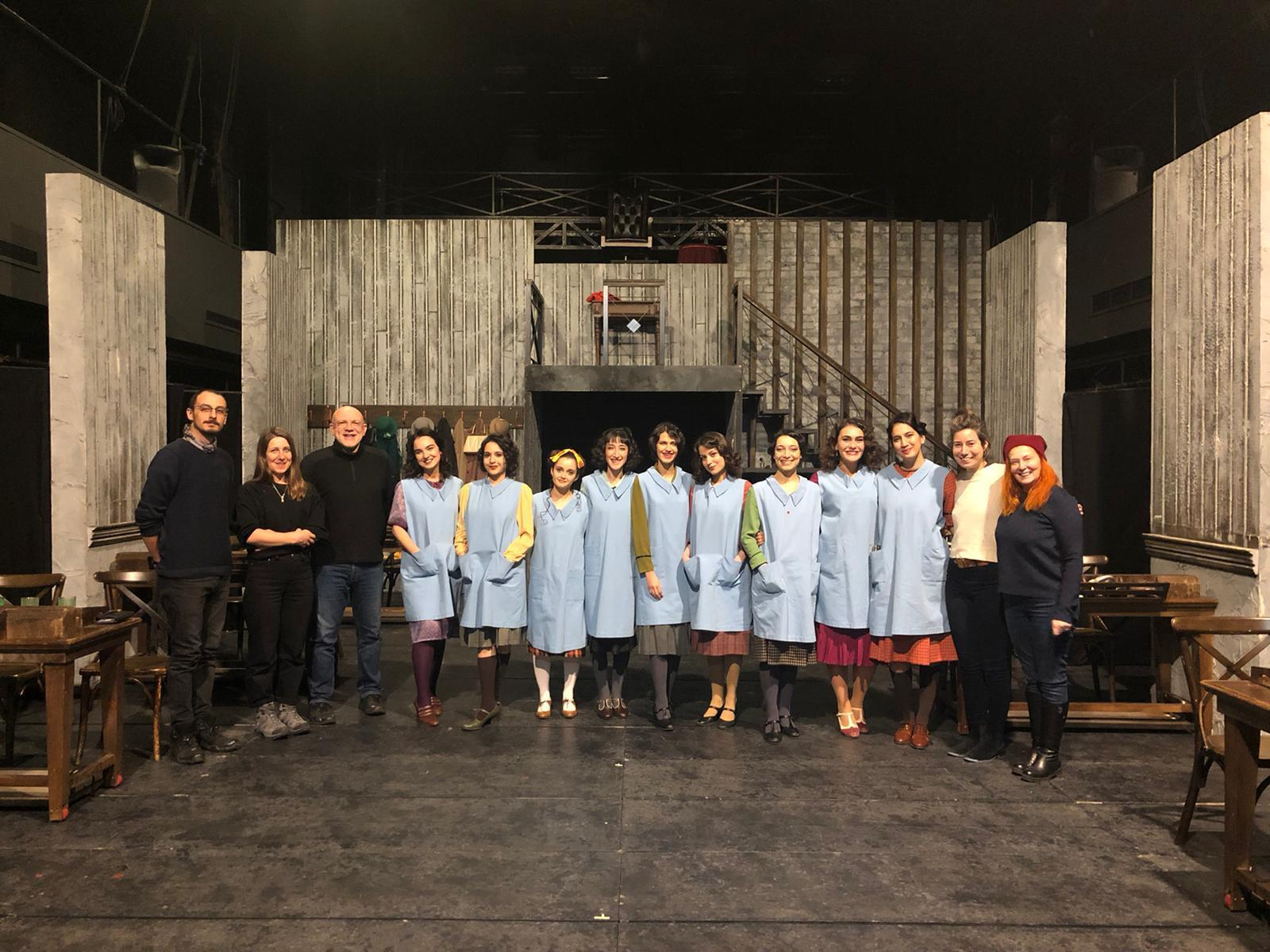
Then COVID-19 entered our lives and everything went online. We paused filming and got back to doing research and meetings online. I continued teaching as well as working on my book Documentary Cinema in Turkey.
Recording Resistance
In 2021, after four years with an unelected rector, the faculty of Bogaziçi University thought that our current rector would be reappointed for another four-year term and we would continue with our lives as is. This illusion was shattered overnight as we celebrated New Year’s Eve under COVID curfew in our homes. We read on social media that overnight Erdogan had appointed somebody named Melih Bulu as the rector of Boğaziçi University.
While under curfew, we quickly organized an online academic forum and discussed our response. Out of that meeting came a short “We do not accept! We will not give up!” declaration calling attention to the fact that it was our responsibility to protect our university’s institutional autonomy, academic freedom, and democratic procedures. We, as academics, became part of the now well-known Boğaziçi University Resistance.
As a documentary filmmaker, I thought my most valuable contribution to our resistance would be to document it in photographs and videos. Because the university was surrounded by police and the press was not allowed in, I also thought that the images and sounds I recorded should be shared with the press and the public. So, almost every day, I took photographs, recorded videos of our daily vigil, and disseminated them. The daily vigil took place at noon, where every day—rain, shine, or snow—the faculty would don their academic gowns, turn their backs to the rectorate building, and stand in silence in a symbolic act of disapproval and defiance.
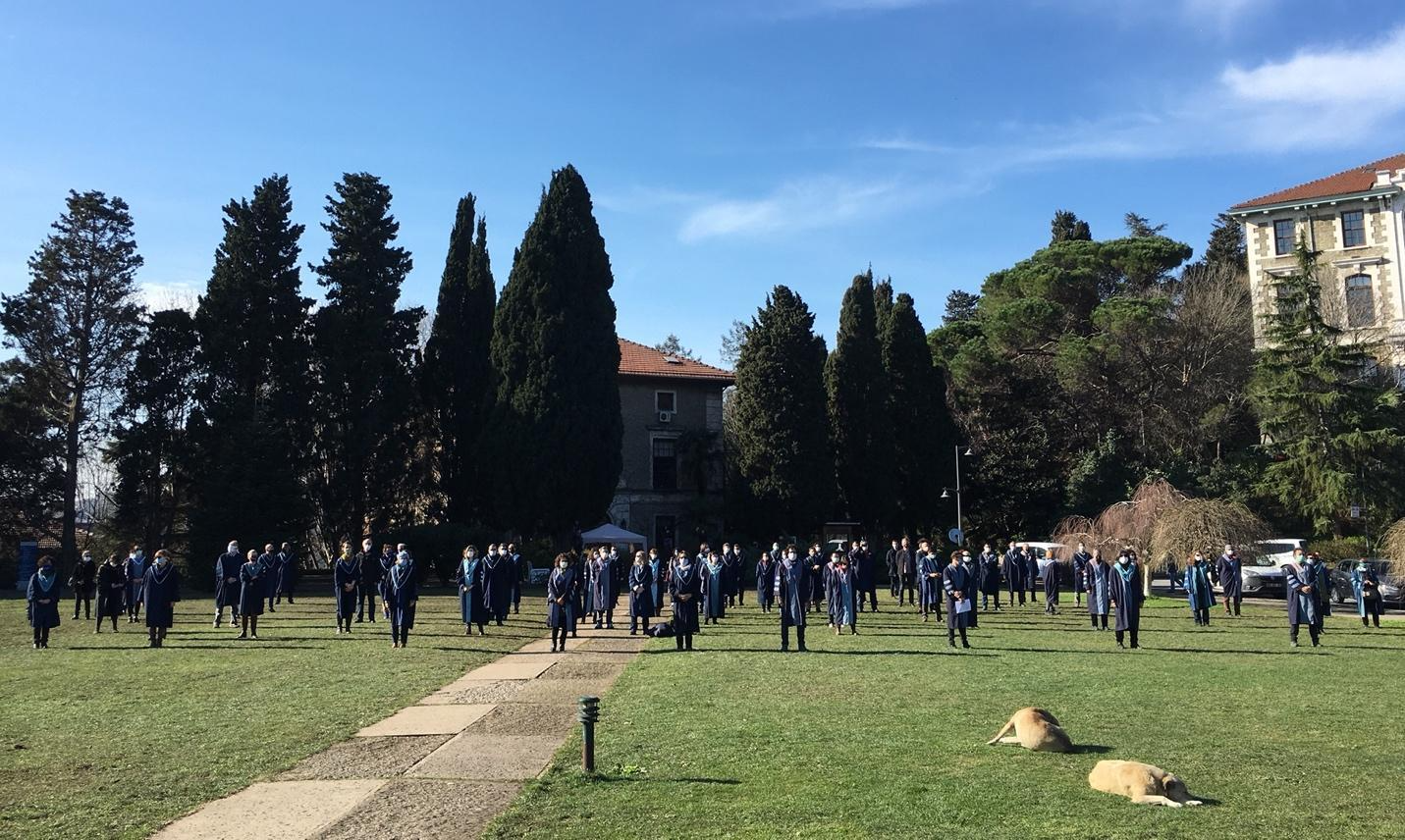
February 2021 began with the closure of the student LGBTQI+ student club, for which I was the academic advisor; the closure of the office of prevention of sexual harassment; and the imprisonment of university students for organizing an on-campus art exhibit in protest of the newly appointed rector.
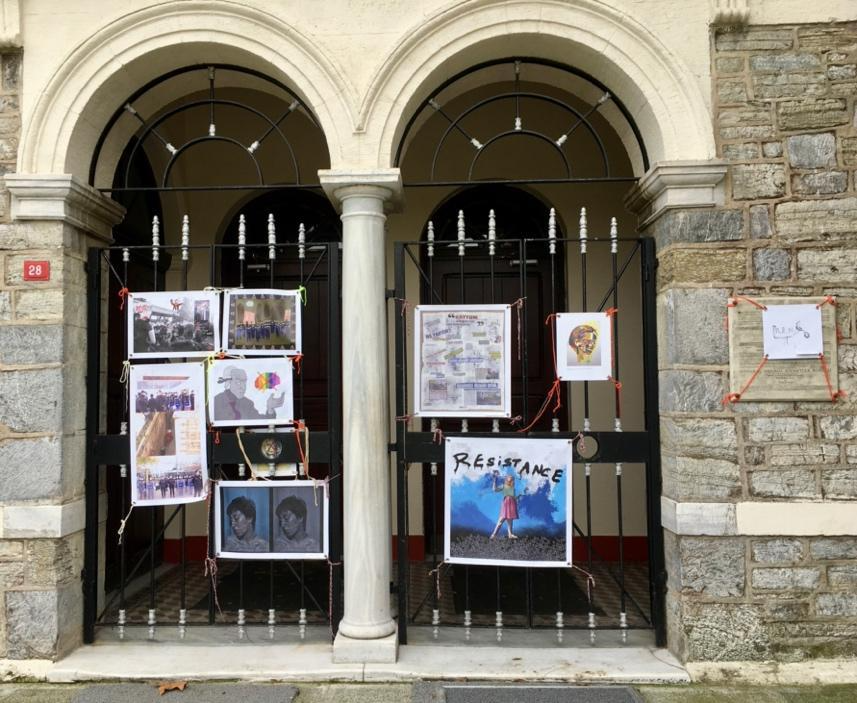
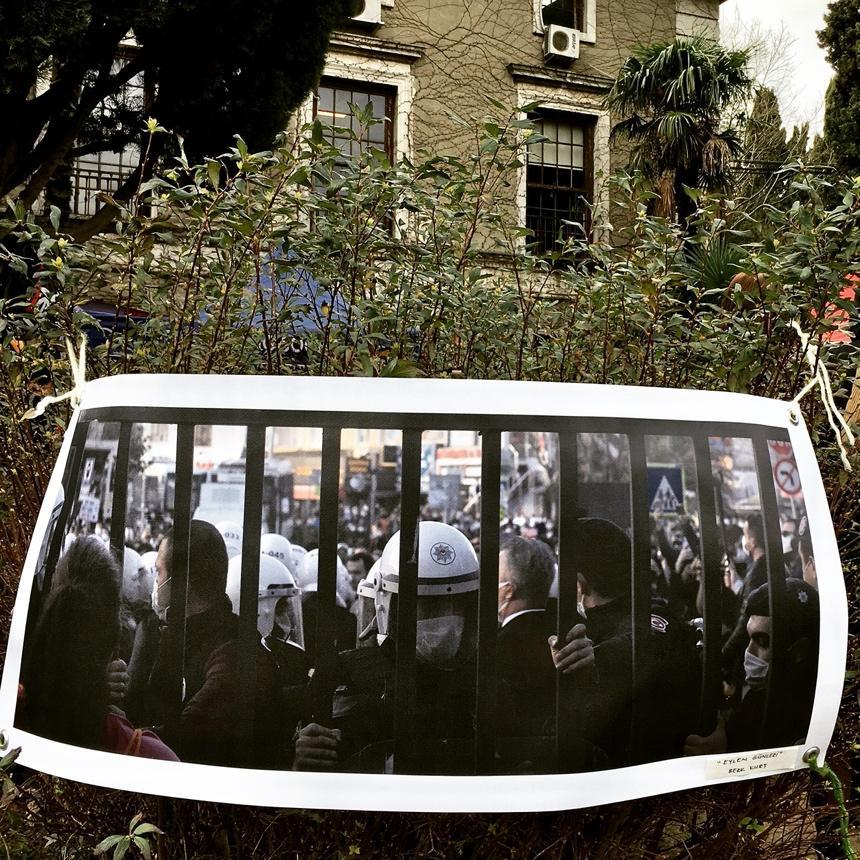
Even though I received a terminal degree in film and media arts from Temple University in 1999, this degree had not been recognized as a terminal degree equivalent to a PhD in other disciplines by the Council of Higher Education in Turkey. Since my return to Turkey in 2000, I had been denied a tenured teaching position, which meant that my official status was somewhat precarious. In 2007 I had started teaching full-time at Boğaziçi University, and for 14 years I faced no problems with the automatic renewal of my position. But in July 2021, my position was not renewed, and I was dismissed by Mehmet Naci İnci, who had become the appointed interim acting rector after Melih Bulu’s overnight dismissal, which was also a surprise. It was clear that I was targeted for being an active and vocal participant in the resistance, as well as one of the people who were audiovisually documenting and sharing it with the world.
This moment was when a number of solidarity campaigns were organized on my behalf to call attention to my unlawful and unjust dismissal. As far as my colleagues and I were concerned, the decision to keep me away from the university was illegitimate. As an act of disobedience, I continued to work in my office and document the resistance. I also declared publicly that I would be teaching my courses in the fall as planned. Then, in August 2021, I started a legal battle against the university administration to be reinstated.
On October 11, 2021, I was ready to give my first public lecture of the semester. When I arrived at the gate of the university, I was denied access. That day the vigil was split into two for the first and only time. While some of my colleagues stood with their backs turned at the rectorate, others stood with me at the gate, albeit on different sides of the barrier.
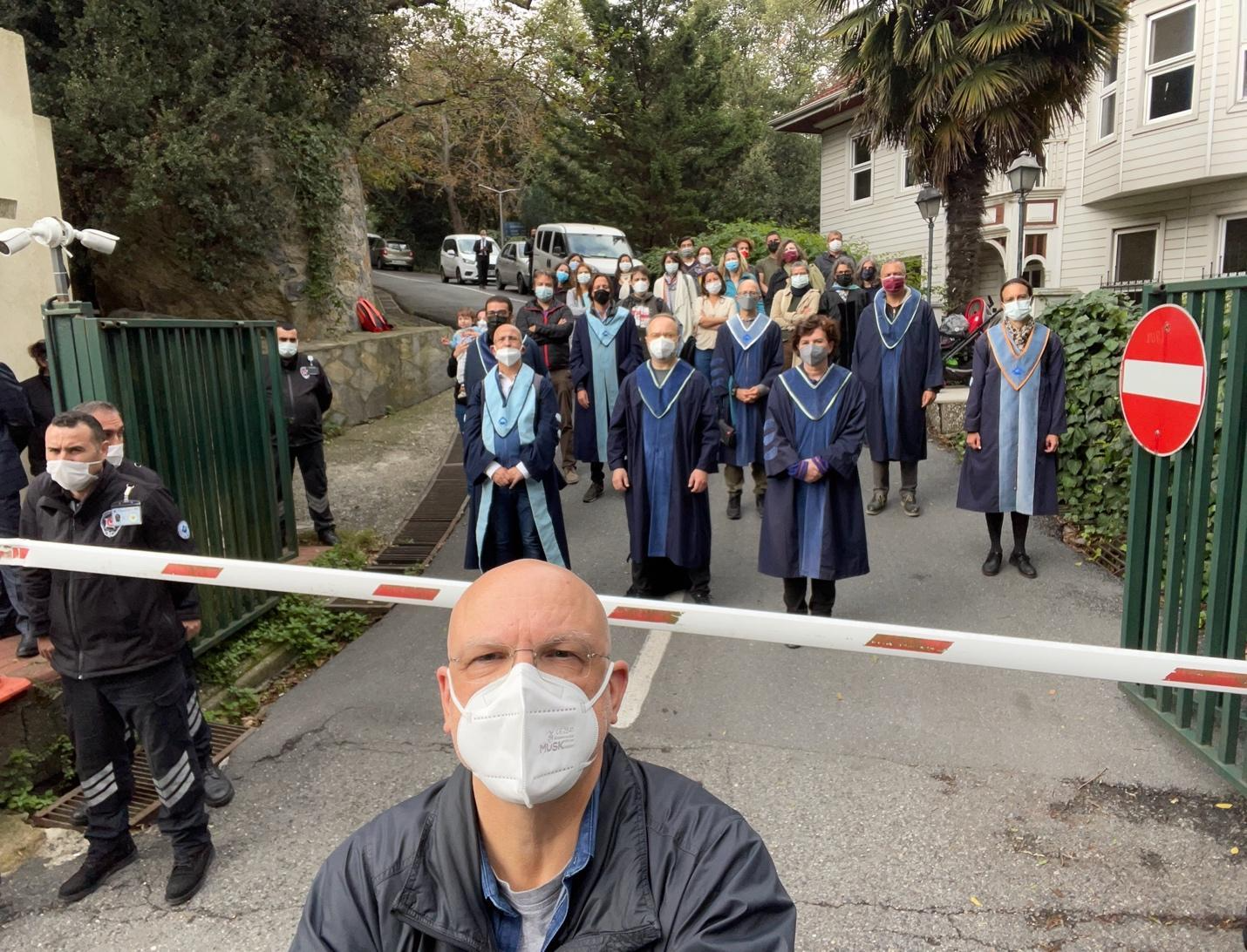
Since I was no longer present on campus to document the resistance, taking photographs and shooting videos became the responsibility of my colleagues and students. I became an off-site editor and continued to disseminate the images and sounds of our resistance.
Months after I took the university administration to court, the court first issued a stay-of-execution order to reverse my dismissal and subsequently annulled the dismissal decision since it was unlawful. On March 25, 2022, to much fanfare, I was back on campus documenting the vigil.
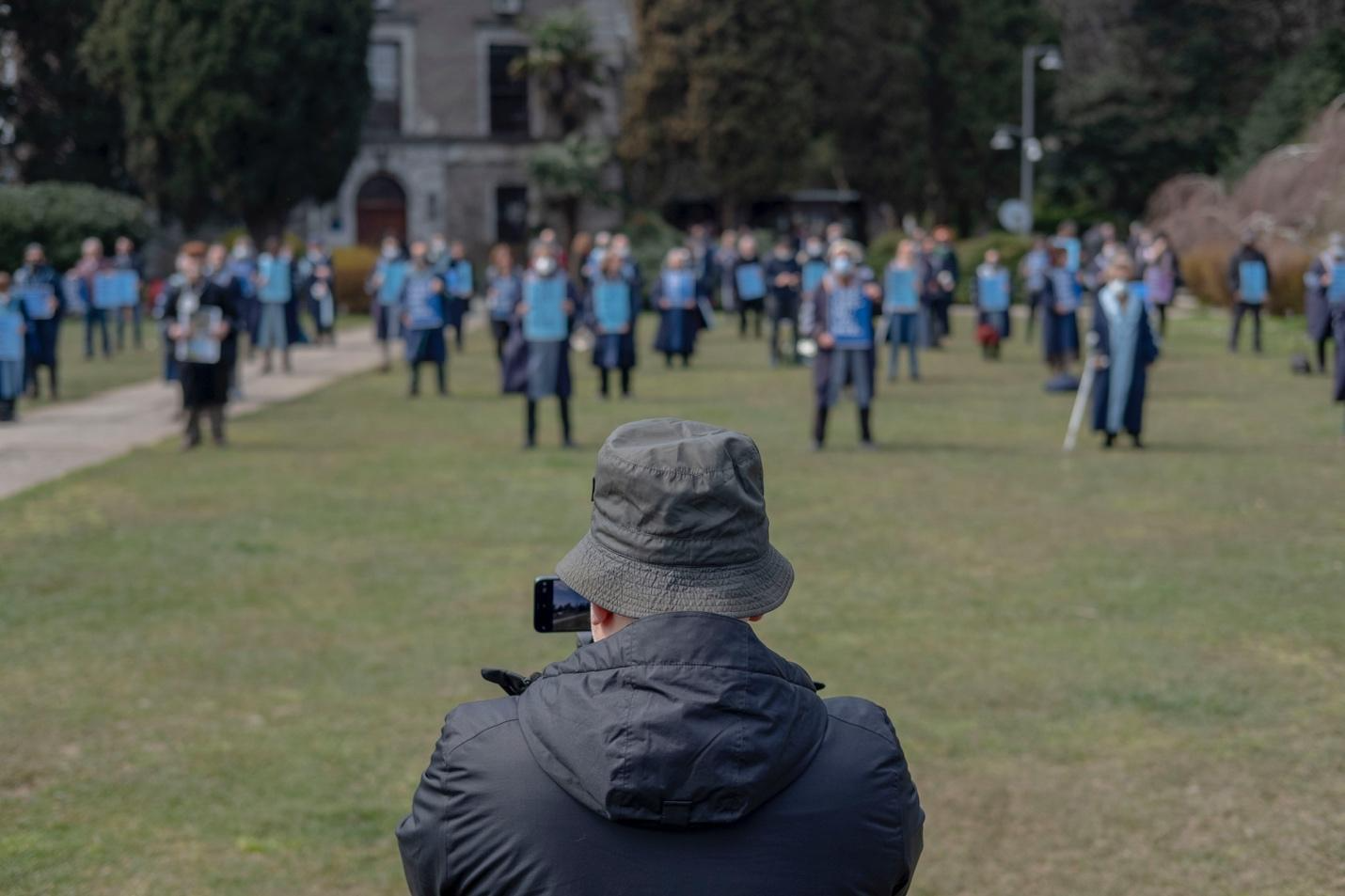
Subsequent Dismissals
In July 2022, a few months after I was reinstated per the court order, I was dismissed by Naci İnci for the second time. This time I was forced to empty out my office of 15 years in just three hours.
Once again, I took the university administration to court, got the dismissal decision annulled, and was reinstated for a second time. Eleven months later, I was back on campus and documenting the ongoing resistance.
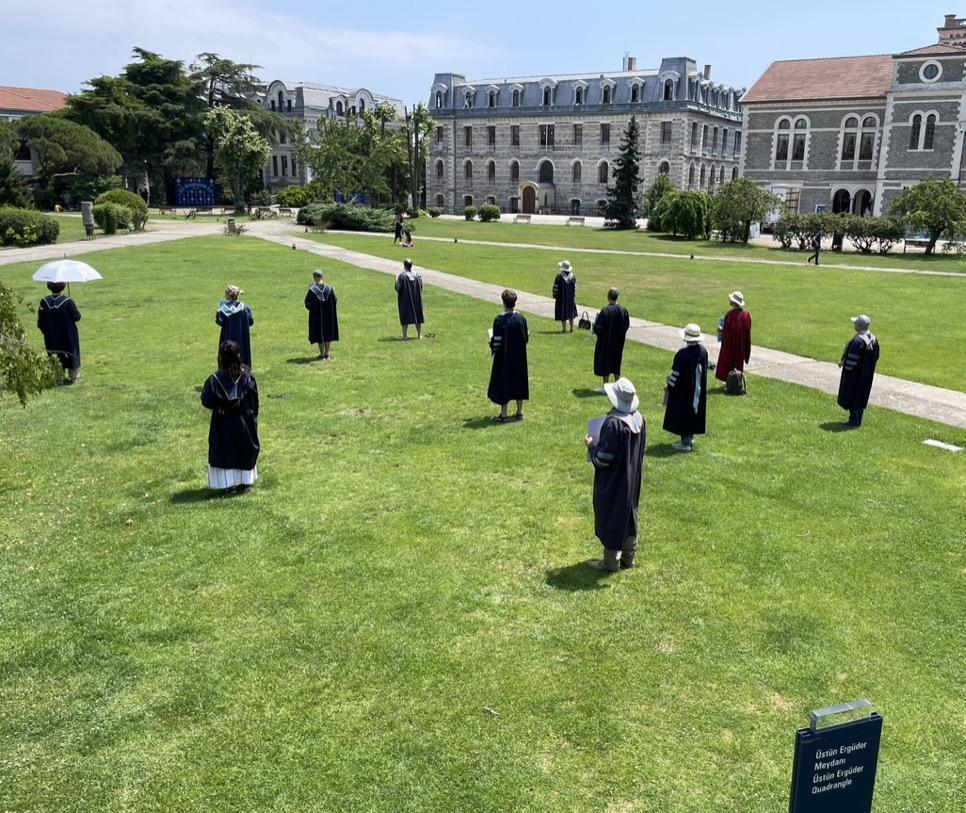
In July 2023, only a few weeks after I was officially reinstated for the second time, I was dismissed for the third time. Because of the previous court decisions in my favor, I once again took my case to court, and now I am hoping the court will issue a stay-of-execution order, so that I can be reinstated and go back to the university. As before, I have been unlawfully barred from the campus as a form of extrajudicial punishment. Unfortunately, this is the fifth semester when I am unable to teach.
The resistance at Boğaziçi University passed its 1,000th day on September 30, 2023. For more than 1,000 days, we have been saying that we do not accept the government appointment of rectors at our university and that we will not give up defending the autonomy of our university, academic freedom, and democratic procedures at our university. Of course, we also demand the same for all institutions of higher education in Turkey. And the 1,000+ day communal audiovisual archive of the resistance also continues to grow.
Of course, I am not the only faculty member to be targeted by the appointed administration for not obeying. My dear friend and colleague Mohan Ravichandran, a professor of mathematics, was dismissed in the fall of 2021, in the middle of the semester. Another dear friend and colleague Tolga Sütlü, a professor of molecular biology, was dismissed in the fall of 2022 in the midst of many projects in his lab with his graduate students. Many colleagues have been forced to retire or quit. Courses taught by various adjunct, retired, and emeritus faculty have been canceled.
But as s we said for the first time on January 3, 2021, and as we continue to say after 1,000 days: “We do not accept! We will not give up!”
As for Nuclear alla Turca, in its seventh year the film is still cooking. It has become a long-term film project awaiting my time and energy.
Can Candan is an Istanbul-based award-winning and internationally distributed documentary filmmaker and an academic who teaches documentary cinema and writes on the history of documentary films in Turkey. He is an active member of the ongoing Bogaziçi University Resistance for institutional autonomy, academic freedom, and democratic procedures.




